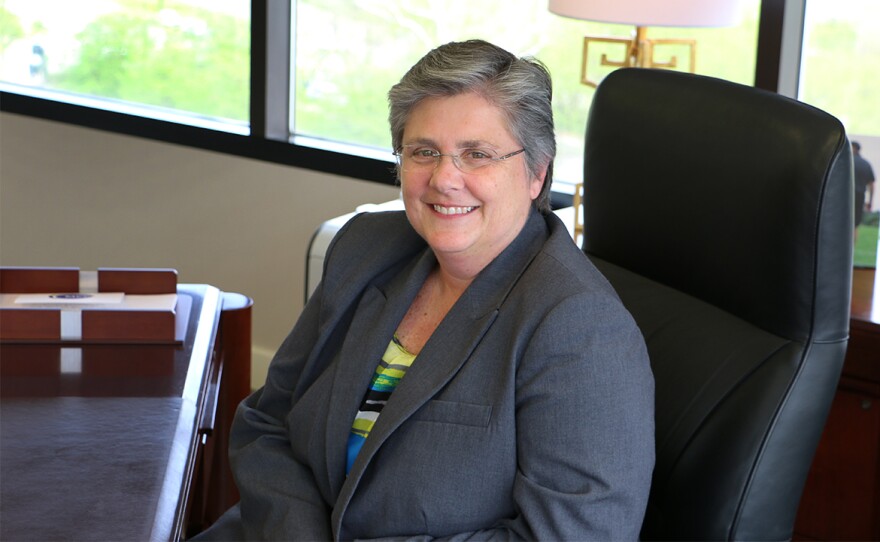Danette K. Wilson took over as president and chief executive officer of Blue Cross and Blue Shield of Kansas City in January, taking the reins from David Gentile, who stepped down for health reasons.
Blue KC provides health coverage to more than one million residents in the greater Kansas City area, including Johnson and Wyandotte counties in Kansas and 30 counties in northwest Missouri.
Wilson has been with Blue KC for more than 25 years, serving in many capacities, including as chief marketing officer.
Wilson sat down with Heartland Health Monitor to discuss a variety of issues, including the Affordable Care Act (ACA) and how Blue KC is attempting to manage costs.
We have gotten people affordable health insurance, but now we have the problem of high deductibles.
If you talk about the cost of health care, and the cost in its entirety, that hasn’t gone down. It’s actually continued to go up. Some people’s premiums are lower than they used to be because of the way the age bands work with the ACA and primarily, though, because of the government’s subsidies to folks. And so the cost continues to rise. That’s a challenge for the industry that continues to need attention. At the same time, you have these deductibles that continue to rise – you’re exactly right – but it’s really not counterbalancing, the costs continue to go up and the deductibles continue to go up, and so affordability is definitely a challenge for the industry
How do you bend the cost curve?
Let me first say that the Affordable Care Act did do one good thing and that is provide more access to more people, and so they accomplished that goal, but it has not addressed the cost issue, in fact it has added to the cost issue. And so, I think the answer remains in the private sector, and so what we are doing about it is investing in medical homes in a big way. And so we believe the way to make sure people have affordable access to health care is something has to change, and we think the center of that change is the primary care physician, relying with the primary care physician to pay them, incent them to provide the right care, at the right time, and in the right quantity to the members. And so, I guess it’s five years ago now that we launched a medical home initiative here in Kansas City and we are starting to see some good results out of that investment.
Can you tell me who it involves and some of the key metrics so far?
So today we have approximately half of the primary care physicians in the Kansas City area are designated as medical home providers. And so what that means at a high level is that we are saying to these providers, we want to pay you in a different way and to better align the goals that we mutually have with improving the health of your patients, our members. And so, we pay them a risk adjusted amount for each member, so the doctor I have may be paid a different amount from the doctor you have or someone else has. But in exchange for that we expect the physician to manage to a cost of care over the course of the year.
What have you learned so far?
One of the things that we have learned is how important it is to listen to providers and it’s easy to say we are going to collaborate and we are going to partner, but to truly take the time to listen to them, to change how the model works and tweak it as you go forward, it has been a very interactive process with these primary care physicians, and so we have listened to their input, they have listened to our input. We have changed the way the bonus formula, for instance, works. We have refined the way a patient, or a member, is attributed to a different practice because some people like to go to more than one physician, so just figuring out the mechanics of the program, given how complex the system is, there have been a lot of learnings along the way.
Mike Sherry is a reporter for KCPT television in Kansas City, Mo., a partner in the Heartland Health Monitor team.




